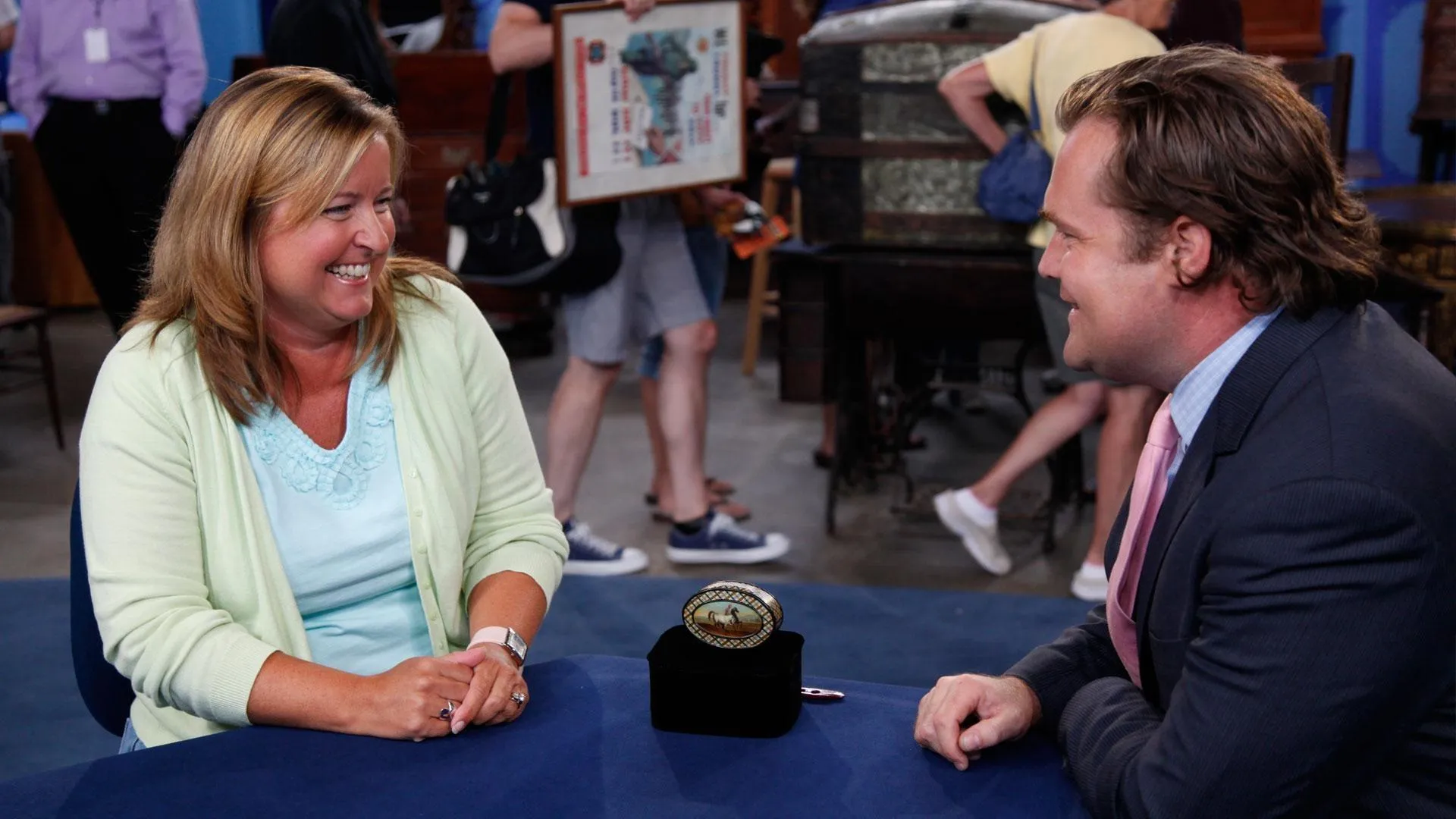GUEST: I purchased this from my aunt's estate about six months ago. I paid $4,500 for it. It came from the family, it's a family item, and it is rather unique, and I like unique items like this.
APPRAISER: Well, it's a mechanical bank. They were primarily popular in the late 19th century in America. They were popular because they promoted thrift, which was a very great Victorian value of the day. This particular bank was popular because it promoted another aspect of what they wanted to teach, namely the Bible.
GUEST: Correct.
APPRAISER: They're made of cast iron. It's really a unique American art form, frankly. We were the only country in the world that made a lot of toys out of cast iron, and the mechanical banks are the best examples of the work, because they were incredibly intricate, incredibly complex mechanically. I just wanted to demonstrate how it works.
GUEST: Okay.
APPRAISER: You put the penny there. And the lever's over here.
GUEST: The lever's over here. And it goes in.
APPRAISER: And there goes the whale. It was made by Shepard Hardware. $4,500 is generally a little high for a "Jonah and the Whale" bank.
GUEST: It was a lot of money, yes.
APPRAISER: The average examples of these generally run $1,000 to $1,500, sometimes as much as $2,000. Are you concerned at all that you overpaid?
GUEST: No, because, as I say, my aunt is family.
APPRAISER: It's an emotional thing.
GUEST: Yes.
APPRAISER: This is above average condition. It does have remarkable paint retention all along here. It is really an exceptional example. I think at auction, a conservative estimate on this bank would be in the $6,000 to $8,000 range.
GUEST: Well, thank you very much. That's nice news.
APPRAISER: So, let's do it one more time.
GUEST: Okay.
APPRAISER: I love the way the jaw just is...
GUEST: Floats up and down, yes.
APPRAISER: Perfectly balanced there.



